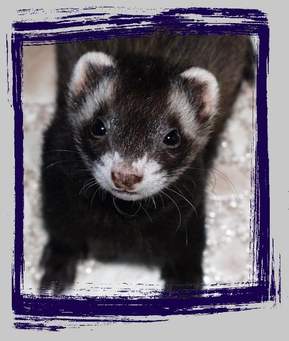Question Talking about language
- null0trooper
-
 Topic Author
Topic Author
So what languages are taught at Whateley other than French, Spanish, Chinese, and Latin?
Forum-posted ideas are freely adoptable.
WhatIF Stories: Buy the Book
Discussion Thread
- E M Pisek
-

null0trooper wrote: We've seen students in French and Spanish language classes. Jade was given the option to take Chinese but not Japanese. IIRC, Stella Woolfe was taking or planning to take Latin. And there's a mention in "Dague de L'Esprit" of at least a French club and a German club.
So what languages are taught at Whateley other than French, Spanish, Chinese, and Latin?
Ones I can't understand, even with my growing and living in said country of which I now live in.
What is - was. What was - is.
- Sir Lee
-

Italian and Portuguese are just barely believable, but not really likely. Maybe as a self-study course.
Arabic and Urdu/Hindi (they are really dialects of the same language, Hindustani), on the other hand, are possibles. Not highly probable, but possible.
Classic languages like Latin, Greek and Sumerian could be in high demand from students in the magical track. And... possibly one or two non-human languages? Would there be a High Sidhe language course available?
Rethinking on the above... it seems to me that Whateley would focus in languages that are useful in large parts of the world, or with large parts of the world's population -- that is, languages that could be useful if you find yourself stranded. linguas francas in important parts of the world, essentially. So:
- English: most of the Western world, Australia India, large parts of the East and some of Africa.
- Arabic: the north half of Africa, a good part of Asia plus Indonesia thereabouts.
- French: a sizable part of Europe, plus several former colonies
- Spanish: Latin America (including Brazil -- Spanish and Portuguese are close enough that we can figure each other), Spain, Portugal and some other former colonies
- Hindustani: Pakistan, northern India and thereabouts -- not an enormous area, but LOTS of people.
- Chinese - 1/4 of the world's population. 'Nuff said.
- Russia -- largest country in the world, plus lots of people in Eastern Europe speak it.
- German - Sorta lingua franca of Eastern Europe, plus fairly understandable for Scandinavians and Dutch.
I would expect that Whateley would pressure foreign students (or at least the ones who are not struggling) to take a third language, besides their native one and English as a Second Language. For instance, Dynamaxx would not be allowed to "coast" by taking German (his native language) and ESL -- he would be pushed to take a third one.
As a counterpoint, we know that Hippolyta (who had hardly any formal studying before coming to Whateley) now speaks 14 languages. Even if we discount her native language (possibly Pashto or some other Iranian language, I think) and English, she learned 12 other ones -- we know that one of those is Chinese, and that she is taking Urdu, Italian and Russian. So that seems like a "yes" on those three languages.
- Astrodragon
-

Also in India and Africa.
English is still the most widely-spoken language in the world (not the first language, but more people speak it)
So maybe we need to give the American students a course in it?
I love watching their innocent little faces smiling happily as they trip gaily down the garden path, before finding the pit with the rusty spikes.
- DanZilla
-

Astrodragon wrote: Actually, despite what the French tell you, English is far more useful in Europe.
Also in India and Africa.
English is still the most widely-spoken language in the world (not the first language, but more people speak it)
So maybe we need to give the American students a course in it?
Jeeeesh, Some people... just because we streamlined the language by removing some U's.
- Phoenix Spiritus
-

DanZilla wrote:
Astrodragon wrote: Actually, despite what the French tell you, English is far more useful in Europe.
Also in India and Africa.
English is still the most widely-spoken language in the world (not the first language, but more people speak it)
So maybe we need to give the American students a course in it?
Jeeeesh, Some people... just because we streamlined the language by removing some U's.
But you took all the colour out of it!
- Dreamer
-

No, we took some of the U's out. Because they were starting to band together, conspiring against all the other letters, plotting to take over the whole language. It would have led to madness!Phoenix Spiritus wrote:
DanZilla wrote:
Astrodragon wrote: Actually, despite what the French tell you, English is far more useful in Europe.
Also in India and Africa.
English is still the most widely-spoken language in the world (not the first language, but more people speak it)
So maybe we need to give the American students a course in it?
Jeeeesh, Some people... just because we streamlined the language by removing some U's.
But you took all the colour out of it!
Thank You for story comments appreciated and help me know me they are being read and liked.
- E M Pisek
-

Dreamer wrote:
No, we took some of the U's out. Because they were starting to band together, conspiring against all the other letters, plotting to take over the whole language. It would have led to madness!Phoenix Spiritus wrote:
DanZilla wrote:
Astrodragon wrote: Actually, despite what the French tell you, English is far more useful in Europe.
Also in India and Africa.
English is still the most widely-spoken language in the world (not the first language, but more people speak it)
So maybe we need to give the American students a course in it?
Jeeeesh, Some people... just because we streamlined the language by removing some U's.
But you took all the colour out of it!
Look how the letter S dominated itself over the letter Z. Nobody noticed where the letter C kicked K to the curb. My god man, I'm a writer not an English Lit Major.
What is - was. What was - is.
- Anne
-

Adopt my story: here
Nowhereville discussion
- Sir Lee
-

1- Spanish
2- French
3- Chinese
4- Latin
5- German
6- Urdu
7- Italian
8- Russian
9-
10-
11-
12-
...at least four empty slots available. We know that Japanese is not one of those, however. I would put Greek and Hebrew as probables due to their value as classic languages, particularly for the magical track students; and I would bet on Arabic as a major international language. That's eleven.
There's at least one more, but from there it gets more speculative... if Japanese didn't make the cut, which language might that be? Another classical one with magic-track value, such as Sanskrit or Sumerian? Or another major international language? The candidates for that one begin to look less inviting: Malay, Portuguese, Bengali, Persian, Punjabi, Swahili... OTOH, all of those have lots more speakers than Italian, which is available. Then again, several of them have less speakers than Japanese...
- Katssun
-

What are the other languages spells would be written in? I'd say Greek and Hebrew definitely make the cut. That could also explain why Chinese is there, but not Japanese. Japanese spells would be written in Kanji or really old Japanese, and from what Hikaru has said, it is more ritual, movement, and shrine based anyway.
Maybe Gaelic or Welsh?
- Mister D
-

- English is the language of international finance, and of international science. You've got to be able to read contracts, and, papers.
- German is (currently) the language of high-end engineering.
- Chinese is currently the language of manufacturing, though this may change by Gen2.
- While the body language attached to threats or intimidation can be culturally specific, physical violence is a universal tongue.
Measure Twice
- Anne
-

Adopt my story: here
Nowhereville discussion
- Astrodragon
-

Gaelic and Welsh are quite different, btw.
I love watching their innocent little faces smiling happily as they trip gaily down the garden path, before finding the pit with the rusty spikes.
- MM2ss
-

As for Gaelic vs Welsh, which Gaelic? Both descend from Celtic languages, but Gaelic (all forms) descends from the Q-Celtic line while Welsh traces back to the P-Celtic line.
Finally, there is always the classic language of magic...Enochian... Though we all know the story behind that one I am sure.
[EDIT] I forgot Persian... So proto-Iranian and Old-Persian could work. As I recall, that is where we actually get the term "Magus" from.
- Astrodragon
-

I love watching their innocent little faces smiling happily as they trip gaily down the garden path, before finding the pit with the rusty spikes.
- MM2ss
-

We start with the "Indo-European" language tree. Proto-Celtic (or common Celtic) splits off. That then splits between the Insular(England, Scotland, Ireland, etc) and Continental Celtic languages.
At the Insular Celtic level is where we find the common point of origin.
Insular Celtic then split into Goidelic(Q-Celtic) and Brythonic(P-Celtic).
Goidelic(Q-Celtic) is where we get Scotts Gaelic, Irish Gaelic and Manx. Brythonic(P-Celtic) gives us Brittonic, Ivernic and Pictish.
From Brittonic we get Breton, Cornish, Cumbric and Welsh.
Meanwhile, on the continent, Continental Celtic was also dividing, giving us Celt-Iberian, Galatian, Gaulish, Lepontic and Norish.
The commonalities are just a generation or so back in language terms. Considering that Old-Persian evolved into New-Persian in a mere 200 or so years, we could be looking at just a few hundred years ago when Welsh and Scottish Gaelic speakers would have looked like different dialects of one language instead of completely different languages.
- Oneiros
-

That fact plus the sheer amount of people in east asia plus the immensely growing importance of China in industry, trade and what not would make mandarin a top choice for a language to learn. Imagine Ayla ignoring such an enormous market because she doesn't know the proper language.
Also with the refugee crisis at the very least in europe arabic might become very useful very quickly.
- MM2ss
-

"The European Commission has announced an agreement whereby English will be the official language of the EU, rather than German, which was the other contender. Her Majesty's Government conceded that English spelling had room for improvement and has therefore accepted a five-year phasing in of "Euro-English".
In the first year, "s" will replace the soft "c". Sertainly, this will make sivil servants jump for joy. The hard "c" will be dropped in favour of the "k", Which should klear up some konfusion and allow one key less on keyboards.
There will be growing publik enthusiasm in the sekond year, when the troublesome "ph" will be replaced with "f", making words like "fotograf" 20% shorter.
In the third year, publik akseptanse of the new spelling kan be expekted to reach the stage where more komplikated changes are possible. Governments will enkourage the removal of double letters which have always ben a deterent to akurate speling. Also, al wil agre that the horible mes of the silent "e" is disgrasful.
By the fourth yer, peopl wil be reseptiv to steps such as replasing "th" with "z" and "w" with "v".
During ze fifz yer, ze unesesary "o" kan be dropd from vords kontaining "ou" and similar changes vud of kors be aplid to ozer kombinations of leters. After zis fifz yer, ve vil hav a reli sensibl riten styl. Zer vil be no mor trubls or difikultis and everivun vil find it ezi to understand ech ozer. ZE DREM VIL FINALI COM TRU!
Herr Schmidt"
---So, let's not tinker too much with the American or Queen's English unless we want to move into German-English.
- Arcanist Lupus
-

MM2ss wrote: Sort of off topic, but sort of on topic, this joke:
"The European Commission has announced an agreement whereby English will be the official language of the EU, rather than German, which was the other contender. Her Majesty's Government conceded that English spelling had room for improvement and has therefore accepted a five-year phasing in of "Euro-English".
In the first year, "s" will replace the soft "c". Sertainly, this will make sivil servants jump for joy. The hard "c" will be dropped in favour of the "k", Which should klear up some konfusion and allow one key less on keyboards.
There will be growing publik enthusiasm in the sekond year, when the troublesome "ph" will be replaced with "f", making words like "fotograf" 20% shorter.
In the third year, publik akseptanse of the new spelling kan be expekted to reach the stage where more komplikated changes are possible. Governments will enkourage the removal of double letters which have always ben a deterent to akurate speling. Also, al wil agre that the horible mes of the silent "e" is disgrasful.
By the fourth yer, peopl wil be reseptiv to steps such as replasing "th" with "z" and "w" with "v".
During ze fifz yer, ze unesesary "o" kan be dropd from vords kontaining "ou" and similar changes vud of kors be aplid to ozer kombinations of leters. After zis fifz yer, ve vil hav a reli sensibl riten styl. Zer vil be no mor trubls or difikultis and everivun vil find it ezi to understand ech ozer. ZE DREM VIL FINALI COM TRU!
Herr Schmidt"
---So, let's not tinker too much with the American or Queen's English unless we want to move into German-English.
Heh. Have you heard of the book Ella Minnow Pea ? It's a novel in letters.
"Shared pain is lessened; shared joy, increased — thus do we refute entropy." - Spider Robinson
- MM2ss
-

- slapshots
-

- E. E. Nalley
-

MM2ss wrote: ---So, let's not tinker too much with the American or Queen's English unless we want to move into German-English.
Not to be pedantic, but wouldn't that be moving back into German-English? I mean, it looks like you've removed all that Norman influence of those pesky conquerors trying to pick up Anglo-saxon bar maids in their latest conquest...?
I would rather be exposed to the inconveniences attending too much liberty than to those attending too small a degree of it.
Thomas Jefferson, to Archibald Stuart, 1791
- Valentine
-

Don't Drick and Drive.
- MM2ss
-

- E. E. Nalley
-

MM2ss wrote: Depends on how you wish to classify it I think. The "English" of the time of Alfred the Great is very different from both German and what we would call English.
True, true.
I would rather be exposed to the inconveniences attending too much liberty than to those attending too small a degree of it.
Thomas Jefferson, to Archibald Stuart, 1791
- Mister D
-

MM2ss wrote: Depends on how you wish to classify it I think. The "English" of the time of Alfred the Great is very different from both German and what we would call English.
There is one montage in the film, "The 13th Warrior", where an Arabic diplomat is travelling with a group of people from the Norse/Germanic tribes. (It's set in roughly 700-900AD-ish.)
I was shown this film by a native-German-speaker, who explained that it was historically accurate in terms of the older language, but could still be understood as a really obscure, rural dialect.of Low German.
I also showed this film to a couple of friends who speak Latin, as well as German and Norwegian, and they said the same.
I also caught one performance of a skald who recited the entirety of the poem, Beowulf in it's original language. While it was difficult/almost-impossible to understand, you could see how the rhythm of the piece worked.
Chewy, chewy stuff...
Measure Twice
- E. E. Nalley
-

Mister D wrote:
I also caught one performance of a skald who recited the entirety of the poem, Beowulf in it's original language. While it was difficult/almost-impossible to understand, you could see how the rhythm of the piece worked.
Chewy, chewy stuff...
I am SO jealous! That must have been magnificent!
I would rather be exposed to the inconveniences attending too much liberty than to those attending too small a degree of it.
Thomas Jefferson, to Archibald Stuart, 1791
- MM2ss
-

Fæder ure þu þe eart on heofonum,
si þin nama gehalgod.
To becume þin rice,
gewurþe ðin willa,
on eorðan swa swa on heofonum.
Urne gedæghwamlican hlaf syle us todæg,
and forgyf us ure gyltas,
swa swa we forgyfað urum gyltendum.
And ne gelæd þu us on costnunge,
ac alys us of yfele.
Soþlice
In modern English it is better known as Matthew 6:9-13...which I think we will all agree it bears little resemblance to English-English or American-English. Though it does look like some of the text spellings I have seen...
- Mister D
-

MM2ss wrote: English is descended from West Saxon. I don't know much of the Gemanic languages, so anyone willing or able, please tell me how close the following is to modern German.
Fæder ure þu þe eart on heofonum,
si þin nama gehalgod.
To becume þin rice,
gewurþe ðin willa,
on eorðan swa swa on heofonum.
Urne gedæghwamlican hlaf syle us todæg,
and forgyf us ure gyltas,
swa swa we forgyfað urum gyltendum.
And ne gelæd þu us on costnunge,
ac alys us of yfele.
Soþlice
In modern English it is better known as Matthew 6:9-13...which I think we will all agree it bears little resemblance to English-English or American-English. Though it does look like some of the text spellings I have seen...
It's almost like lowland Scots, which is a variant of the Frisian dialects, that evolved into modern Dutch.
You'll still find people talking a more modern version of this dialect in rural areas.
You can also find some variations of this within craft-specific tongues, for example, within traditional boat-yards around the North Sea, where they use similar words for boat components, no matter which part of the coastline you happen to be on...
And yes, it was very readable, though my accent has faded since i left home.
Measure Twice
- MM2ss
-

- Bek D Corbin
-

- Mister D
-

Bek D Corbin wrote: As a matter of fact, French is poised to make a big comeback, as Africa is starting to look like it's finally going to make its move into the big leagues. And for much of Africa, French is what English is to the Indians: a mutually acceptable third language that you can speak to your neighbors in, without either side (or rather, both sides) giving up the mother tongue advantage.
Yes. It's nice that French will be the lingua franca, rather than english.
Measure Twice
- elrodw
-

Never give up, Never surrender! Captain Peter Quincy Taggert
- Anne
-

MM2ss wrote: I don't remember much of my time in Scotland... I remember there was lots of drinking involved after I met up with some distant relatives (one noticed a tattoo I have, turns out he was from the same clan, but just exactly how we are related is likely confusing as hell), the rest is kind of a blur. One thing I do recall, those of us from the South had a much easier time understanding the Scots than the folks from say California and the North-east.
If I went to Scotland I wouldn't know which Tartan to sport! Should I sport the Rankin Tartan (most recent emigrant) or the Campbel Tartan (Not quite the most royal because there are several princesses in the tree back there and that means probably 15-16 generations back a king...) I told my sister that her kids have a fair claim (if distant) on the thrones of England and Scotland, it seems her husband can trace his linage back to Billy the conqueror... And as I noted our family probably can find Robert the Bruce if we look hard enough!
Adopt my story: here
Nowhereville discussion
- Sir Lee
-

- null0trooper
-
 Topic Author
Topic Author
MM2ss wrote: I don't remember much of my time in Scotland... I remember there was lots of drinking involved after I met up with some distant relatives (one noticed a tattoo I have, turns out he was from the same clan, but just exactly how we are related is likely confusing as hell), the rest is kind of a blur.
I would like to see Scotland some day, as my paternalmost ancestors hail from Dumfriesshire (Before that, there's honestly no telling - as with any other Borderer clan)
MM2ss wrote: One thing I do recall, those of us from the South had a much easier time understanding the Scots than the folks from say California and the North-east.
Years ago, I took a semester of Asante. The one student from California never could get the hang of pronouncing "o" vs "ɔ", while the Floridians picked up on the pronunciation but couldn't say for sure how that worked out. English doesn't distinguish the two letter except as maybe a matter of dialect, but the Deep South dialects are the most likely to have West African influence.
Forum-posted ideas are freely adoptable.
WhatIF Stories: Buy the Book
Discussion Thread
- MM2ss
-

Anne: The wearing of tartans is not technically regulated. The accepted "rule of thumb" is to wear the tartan associated with your surname or your married name. Next in choice is the tartan for the district you or your family comes from. The third part is to wear what is in good taste. So unless you are given the permission of the Queen herself, do not wear the Royal Stewart or the Balmoral tartans. Lastly, tradition is that a person that has no clan/family/district tartan may wear the "hunting" Stewart and the Black Watch tartans. Pretty much wear what you like but avoid anything that says "royal", is named for a particular individual or is specified as the Chief's tartan. The other caveat is that one should normally not mix tartans, with the exception of wearing the kilt in one tartan and the fly plaid in a different tartan. But for ladies that is inapplicable, as they usually wear a sash and I have never heard of someone wearing multiple sashes of differing tartans. It is not a "rule", but a convention.
Sir Lee: The "recent invention" theory is just as false as the "worn since ancient times" theory on tartans. The oldest tartans are the precursors to both clan and district tartans. They became somewhat specific and codified due to the fact that each group in an area tended to be both related and have very few weavers as well. The first reliable documentation on tartans being region or clan specific is from the late 1600's and early 1700's. By the time of the Battle of Culloden many tartans had been specified as being clan specific or district specific. Of course, after Culloden there was the whole proscription of tartans thing...which put a crimp on development and codification. By 1822 there were more than 200 recorded setts. 1587 is the oldest "description" of a specific tartan I have any documentation of, when one of the MacLean's demanded a payment in cloth of white, black and green.
Null0trooper: I don't recall the study off hand (I have far too much reference material and my brain is full I suspect), but there was a theory that the Southern and Appalachian American dialects are closer to the "old english" dialects than modern British English. Right down to the accents and vowel shifts. However, there is also evidence that Southern American English and African American English (they are differentiated a bit these days) used to encompass a great deal of overlap back in the days of slavery and plantations. That overlap began to degrade substantially during the Civil Rights Era as both sides stigmatized the peculiarities of each other's dialects and now they are beginning to overlap again to some degree.
Lastly, for those interested, my avatar over there is in a Black Watch tartan. That was me at the highland games last year, I went with the Black Watch because my cousin wanted a kilt as well and we couldn't find one for his district or surname (we have since located the proper district) and we could not find one in any of the MacLeod tartans in the proper size. He was just a hair too big for the "boys" kilts and just a hair too small for the "mens" kilts. But I was able to track down a Black Watch kilt of the right size, so I also got one for myself.
- Anne
-

Adopt my story: here
Nowhereville discussion
- MM2ss
-

[EDIT] Yep, very likely a distant relative. The Campbell's not only show up in my line, but they also intermarried with the Lewis's (part of the MacLeod's) and the MacDonald/MacDonnel's. Pleased to meet you cuz'.
- Anne
-

Adopt my story: here
Nowhereville discussion
- E M Pisek
-

Anne wrote: Now you'll have me wondering what degree of separation there is!
6 degrees of Bacon and 2 degrees North by Northwest
What is - was. What was - is.
- MM2ss
-

- Sir Lee
-

E M Pisek wrote:
Anne wrote: Now you'll have me wondering what degree of separation there is!
6 degrees of Bacon and 2 degrees North by Northwest
And e²πsqrt(42)i degrees of Erdös.
- E M Pisek
-

Sir Lee wrote:
E M Pisek wrote:
Anne wrote: Now you'll have me wondering what degree of separation there is!
6 degrees of Bacon and 2 degrees North by Northwest
And e²πsqrt(42)i degrees of Erdös.
Quite right Einstein. Quite right.
What is - was. What was - is.
- Kettlekorn
-

- Anne
-

When you think of it this way, it is a wonder it isn't a requirement. One that is carried on until the student is at least able to basically express themselves in sign language. Of course people who didn't wish to be 'overheard' would have to learn to code their sign language if such a requirement were in place. But many are exemplars. And at Whateley if you're not an exemplar you almost need a different track....Kettlekorn wrote: It would make sense if Whateley taught some variant of sign language. Between the people who can't talk and the many ways that people who can normally talk could have their voice temporarily disabled by injuries or people's powers / tech / magic, it would be a very handy language to have.
Adopt my story: here
Nowhereville discussion

